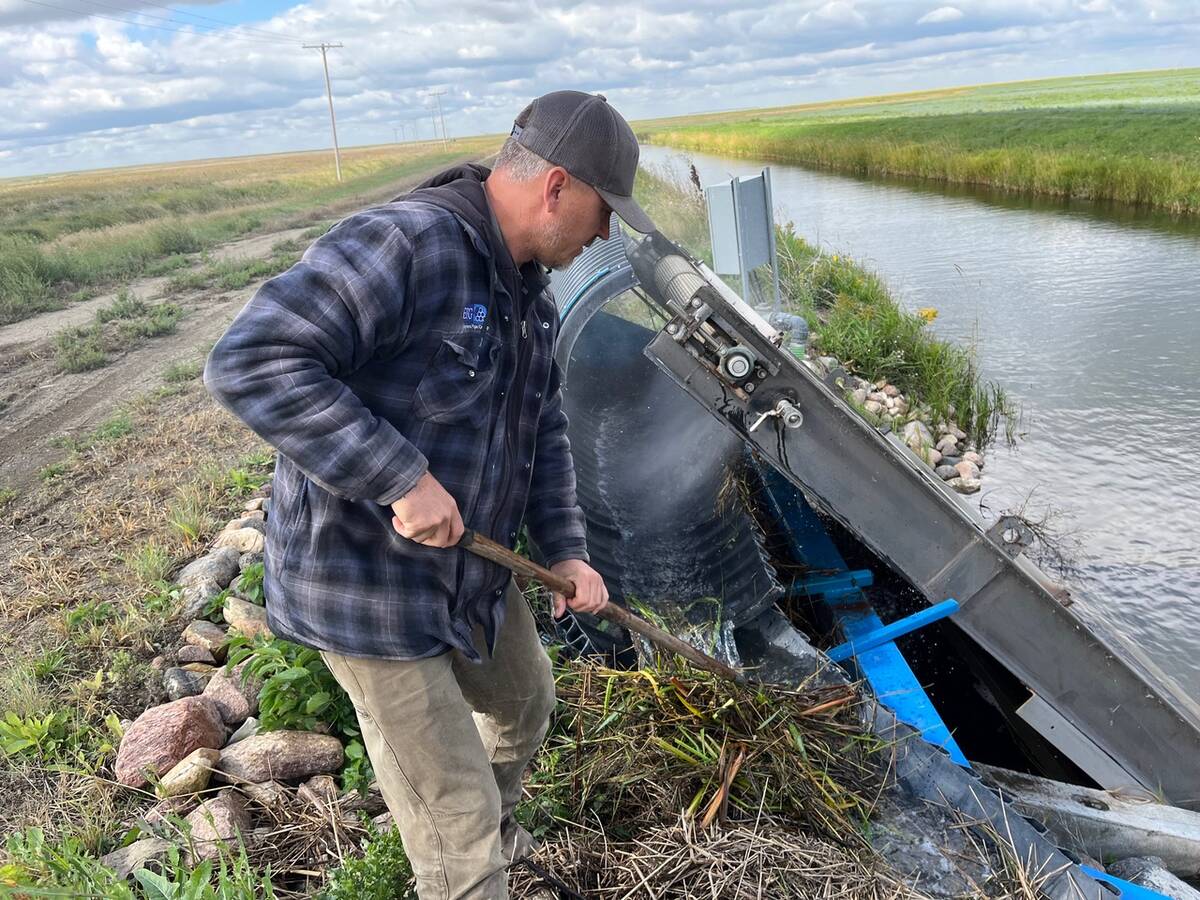Closed. Open. Closed. Open. Closed! Open!
Strong opposition and strong support for the United States opening its border to Canadian cattle characterized the opinions of the 1,564 individuals and organizations that commented on American rules to re-establish live cattle trade across the 49th parallel.
BSE closed the U.S. border to live cattle imports from Canada in May 2003 after the discovery of an infected Canadian cow.
To reopen the border, new rules must be created in the United States. Part of that law-making process included a comment period, during which interested parties could tell the American government what they thought about the issue.
Read Also

Saskatchewan farmer uses tile drainage to manage water
The integration of both irrigation and tile drainage results in higher yields, water efficiency, improved soils and less nutrient runoff, says one producer.
That comment period was set to close Jan. 5, 2004 but was extended to April 7, after an American finding of BSE in Washington state.
Proposed new rules suggested opening the border to all Canadian cattle under 30 months of age, as did the first recommendations. They also accepted that the United States, like Canada, was now a BSE “minimal risk” country.
Some American cattle lobby groups such as R-CALF USA have in the past fought to limit the movement of Canadian cattle into the U.S. and the BSE crisis gave them more ammunition. R-CALF is also a supporter of country-of-origin labelling to limit competition from foreign agricultural products. It provided its opinions to the U.S. Department of Agriculture.
R-CALF told the USDA it opposed opening the border before a seven-year BSE-free period had passed in Canada. However, the largest beef producers’ association in the United States, the National Cattlemen’s Beef Association, supports resumed trade with Canada.
Jan Lyons, NCBA president and a cattle producer from Manhattan, Kansas, summarized part of the NCBA submission in a recent interview.
“We just want to avoid a flood of Canadian cattle. We’d like to see a staged opening of the border … we’re not like some of the other associations that were founded only to keep imports out. But we do want to see Canada treating our feeder cattle the same as we treat theirs,” said Lyons.
U.S. senator Max Baucus of Montana said he wants the border to remain closed until the investigative arm of the United States Congress, called the General Accounting Office, has had the opportunity to “thoroughly examine the actions taken by Canada’s government and cattle industry to safeguard their country against another case of BSE.”
Baucus is on the Senate agriculture committee and the highest-ranking Democrat on the Senate finance committee.
The highest ranking of all U.S. Democrats, presidential hopeful John Kerry, announced last week that he is opposed to opening the U.S. border to live Canadian cattle imports. Six U.S. Democratic Party senators added their letter of opposition.
“While USDA appears determined to significantly increase its BSE testing, we are concerned that you are not requiring Canada to meet the same high standards,” said the letter from Tom Daschle of South Dakota, Herb Kohl, Wisconsin, Byron Dorgan, North Dakota, Jeff Bingaman, New Mexico, Tim Johnson, South Dakota, and Hillary Clinton, New York.
The Canadian Cattlemen’s Association, all of the provincial associations and the Canadian Meat Council provided their views in a single letter April 7. They were part of the 10 percent of the comments that were from Canada.
“The detection of a BSE infected cow in the United States on Dec. 23, 2003, does not materially affect the underlying conclusion that it remains unlikely that BSE would be introduced from Canada under the conditions described in the proposed rule,” the letter said.
The Canadian industry letter suggested that the border be open to all Canadian cattle of any age and that trade resume as soon as possible.
In Saskatoon April 15, federal agriculture minister Bob Speller said “the fact is we are too dependent on the U.S. market for our cattle production. The low Canadian dollar has made it easy and we need to look at expanded processing in Canada.”
He said he has met with U.S. government officials and despite “some opposition that may have something to do with the current politics down there,” he feels live animal trade will soon resume.
“We have been told by our U.S. counterparts that the decision will be based on science and I believe that it will.”
Speller and prime minister Paul Martin are scheduled to discuss the issue with the U.S. president and the secretary of agriculture later this month.
















